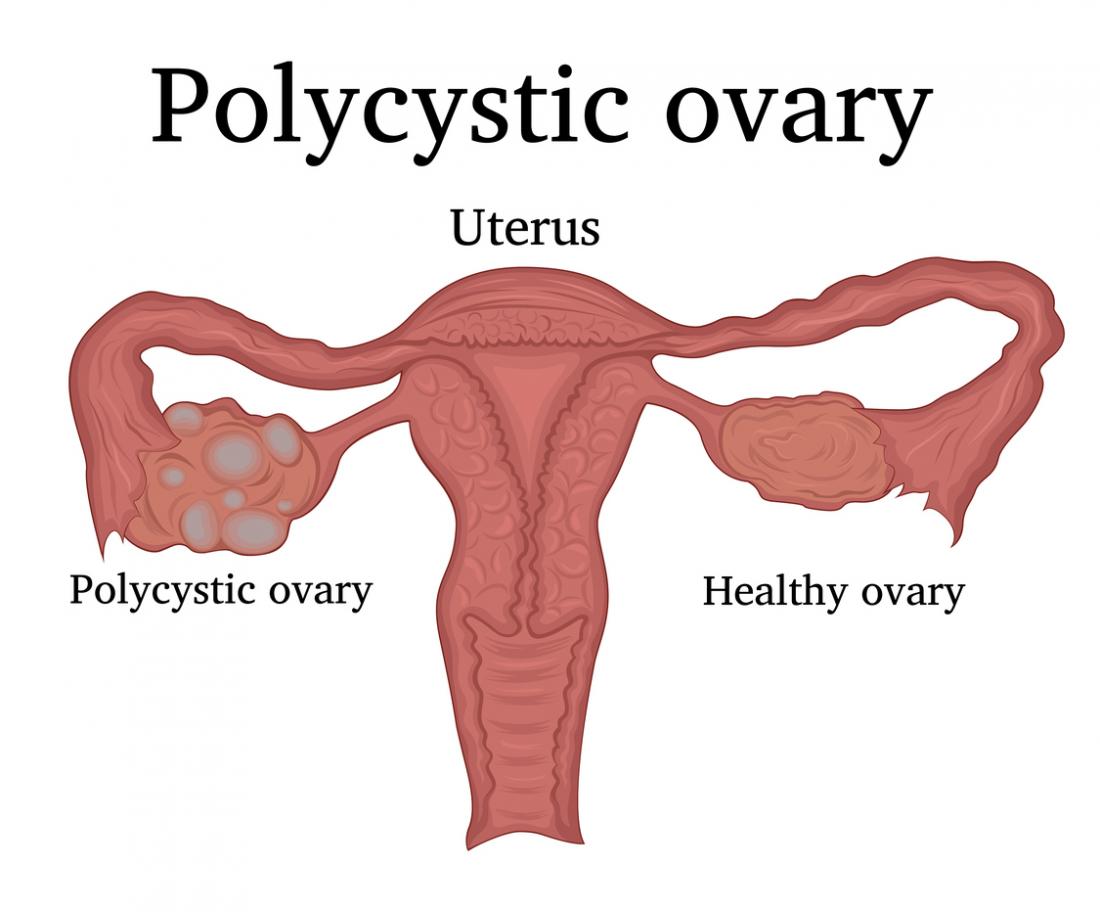The facts regarding Polycystic Ovarian Syndrome
The facts regarding Polycystic Ovarian Syndrome
Polycystic ovarian syndrome (PCOS) affects 10% of women’s population, which is 1 in every 10 women.
What is PCOS?
PCOS is a complex endocrine disorder meaning that it affects the hormones in a women’s body in various ways. These include hyperandrogenism, metabolic derangement (glucose intolerance and hyperinsulinemia) and irregular ovulatory cycles.
Hyperandrogenism refers to high levels of androgens in the body and leads to disorders such as hirsutism (abnormal man-like hair growth all over the body), acne, baldness and absent menstruation.
Glucose intolerance leads to higher levels of glucose (hyperglycemia) in the blood which may lead to higher levels of insulin in the blood (Hyperinsulinemia). The hyperinsulinemia also increases/exacerbates the hyperandrogenism as it causes the ovaries to secrete more testosterone. An alternative that may occur is insulin resistance. Metabolic disorders such as these affect up to 50 – 70 % of women with PCOS.
PCOS may also influence the leutinizing hormone (LH) and follicle stimulating hormone (FSH) ratios which contributes to excess in androgens relative to estrogens. This also affects ovulation or creates an absence of ovulation (anovulation) which would cause infertility. This cycle may also then lead to decreased levels of progesterone.
Symptoms
Women diagnosed with PCOS may have one or more of the following symptoms

- Hirsutism, abnormal hair growth in unwanted places, e.g. around the nipples, on chin and feet, etc.
- Hyperinsulinemia, which causes hypoglycemia, which leads to:
- irritability
- sleepiness
- lethargy
- excessive hunger
- rapid heart rate.
- Alopecia à loss of hair such as baldness
- Acne
- Difficulty to lose weight
- Obesity, which in turn increases the hyperandrogenism and hyperinsulinemia
- Infertility
- Low libido
What is the risk?
A woman with PCOS is more prone to other diseases as a result of the dysfunctioning of her hormones. These include the following:
Endometrial cancer
The endometrial lining that sheds with menstruation may get abnormally thickened with anovulation (which causes prolonged cycles). This, in turn, may lead to endometrial cancer.
Cardiovascular disease
Dyslipidemia may occur as a result of hyperinsulinemia and hyperandrogenism. It causes an increase in lipids in the blood including cholesterol, which may lead to heart problems.
Type 2 Diabetes mellitus (T2DM)
There is an increased risk of developing type 2 diabetes as a result of the hyperinsulinemia, and as many as 10 % of women with PCOS develop T2DM by the age of 40.
Infertility
Anovulation occurs as a result of the abnormal hormone levels produced.
Miscarriage
There is an increased risk, largely due to the associated obesity, or low progesterone levels.
Psychiatric disorders
Women with PCOS often develop anxiety and depression which is largely related to the symptoms of PCOS, but also as a result of the hormonal imbalances. There is also an increased risk of binge-eating disorder and bipolar disease.
Thyroid disorders
Women with PCOS have a higher incidence of thyroid disorders which include thyroiditis and hypothyroidism. This can worsen the symptoms of the syndrome.
Diagnosis
The Rotterdam criteria is most commonly used to diagnose PCOS. To be diagnosed with PCOS, a woman would present with 2 of the following 3 criteria:

Irregular menstrual cycles (resulting from anovulation)

Hyperandrogenism symptoms (Excessive hair growth and/or acne)

Multiple tiny cysts all over the ovaries (visible on ultrasound)
Other testing may be done to assist in confirmation of PCOS, for example an anti-mullerian hormone (AMH) blood test. An excess of this hormone in the blood along with the other symptoms is indicative of PCOS.
Treatment
There is no cure for PCOS, but it can be controlled.
Educating women with PCOS about their condition is the key to helping them control it.
First and foremost, lifestyle changes can have a huge impact on controlling all PCOS symptoms and reducing the associated risks. It is the best and most natural way of controlling PCOS. A low-carb, sugar-free diet, with an exercise program, is highly recommended. Yoga and Pilates as a means of exercise have shown to help not only with weight loss but also with decreasing symptoms of anxiety and depression. Multiple sources of diets and exercise are available on the web.
There have also been many studies demonstrating certain vitamins and minerals that assist with PCOS symptoms, the main two being myoinositol and folic acid. Obtaining a good multivitamin with these essential vitamins is advised to be taken daily.
Other types of treatments are based on the woman’s current needs. It is advisable that a woman with PCOS visit an endocrinologist to assist with prescribing medicines that will help get symptoms under control. Seeing a gynaecologist or fertility specialist may assist with falling pregnant.
Symptoms may be managed with medication, however, it is important to know that symptoms will return on ceasing the use of medication.
Medication that may be prescribed is as follows:
Oral contraceptive pill
Often used to treat symptoms of acne and hirsutism and to regulate the menstrual cycle. Caution is to be taken with long term use, as there are studies suggesting that ceasing the use of the pill leads to exacerbated symptoms.
Anti-androgen drugs
Such as spironolactone and flutamide may be prescribed to combat acne and hirsutism. This is contraindicated during pregnancy.
Metformin
To aid in reducing circulating insulin levels which may reduce ovarian androgen synthesis.
Clomiphene Citrate
To help induce ovulation in women who wish to fall pregnant. There is a chance for twins or triplets with this medication, and it is not guaranteed to work.
Gonadotropin Therapy
Used to induce ovulation where clomiphene citrate and metformin have not worked. This must be closely monitored.
Ovarian Drilling
A laparoscopic surgical treatment whereby tiny holes are drilled into the ovary by cautery/laser. Thought to help induce ovulation, however, there is an increased risk of menopause.
IVF
When natural conception is not occurring, IVF can be considered.
Cosmetic products and procedures are also beneficial in controlling PCOS symptoms and includes:
For hair growth
Waxing, plucking, and bleaching; laser hair removal and electrolysis; hair removal creams.
For acne
Good facial products and monthly facials.
What to do next?
If you think you may have PCOS, speak to your doctor about further testing. Book an ultrasound appointment to view your ovaries for tell tale signs. Blood tests may also be requested.
At diagnosis, the information may shock you to what PCOS entails. Try to remember that you have been this way your whole life, now you can better it for the rest of your life. And most of all, always remember that you are beautiful!
Make a booking
Need to get a scan done?

